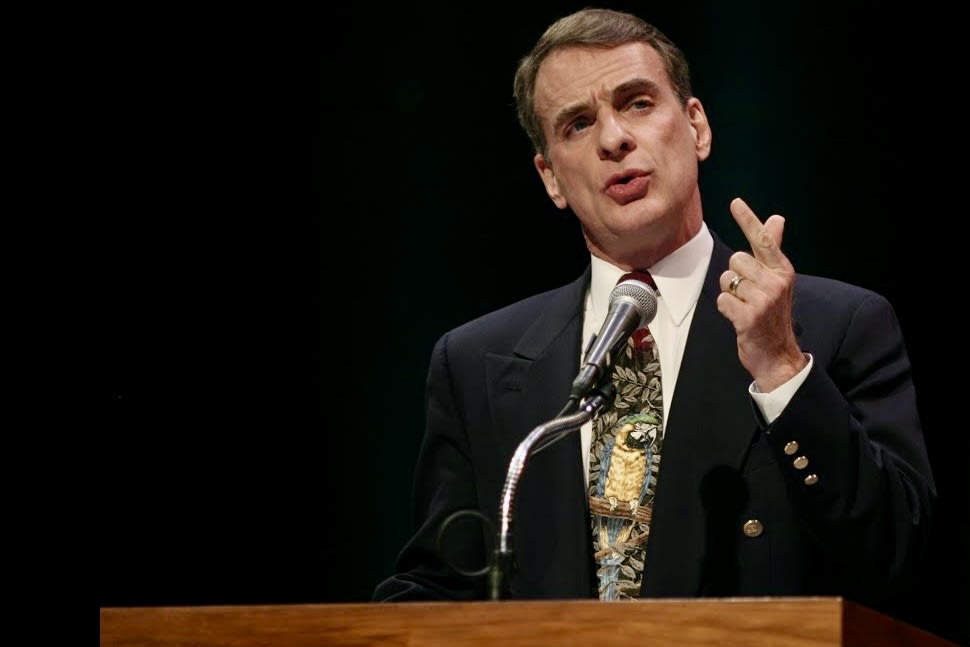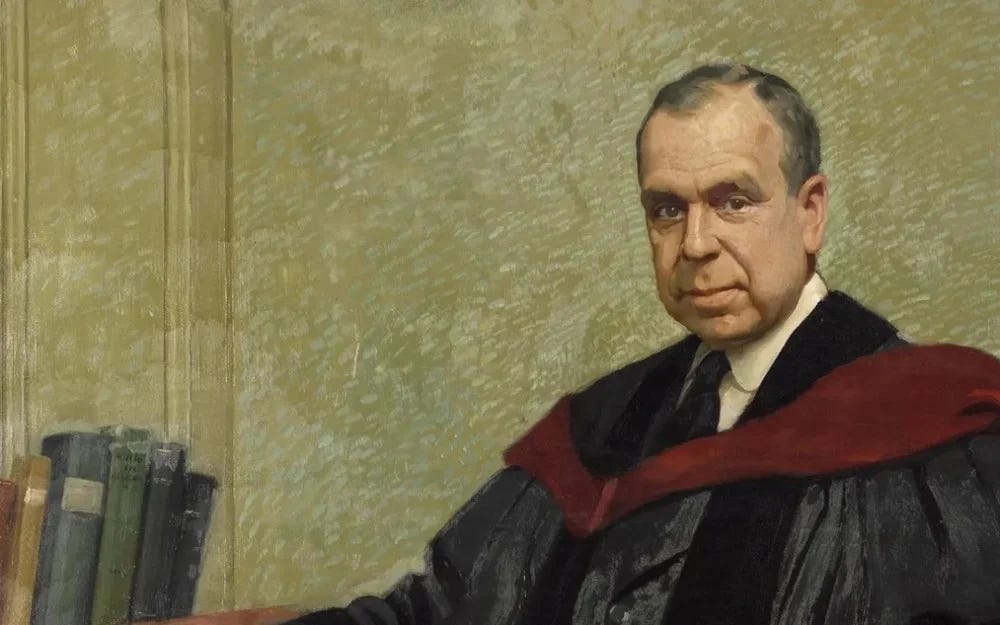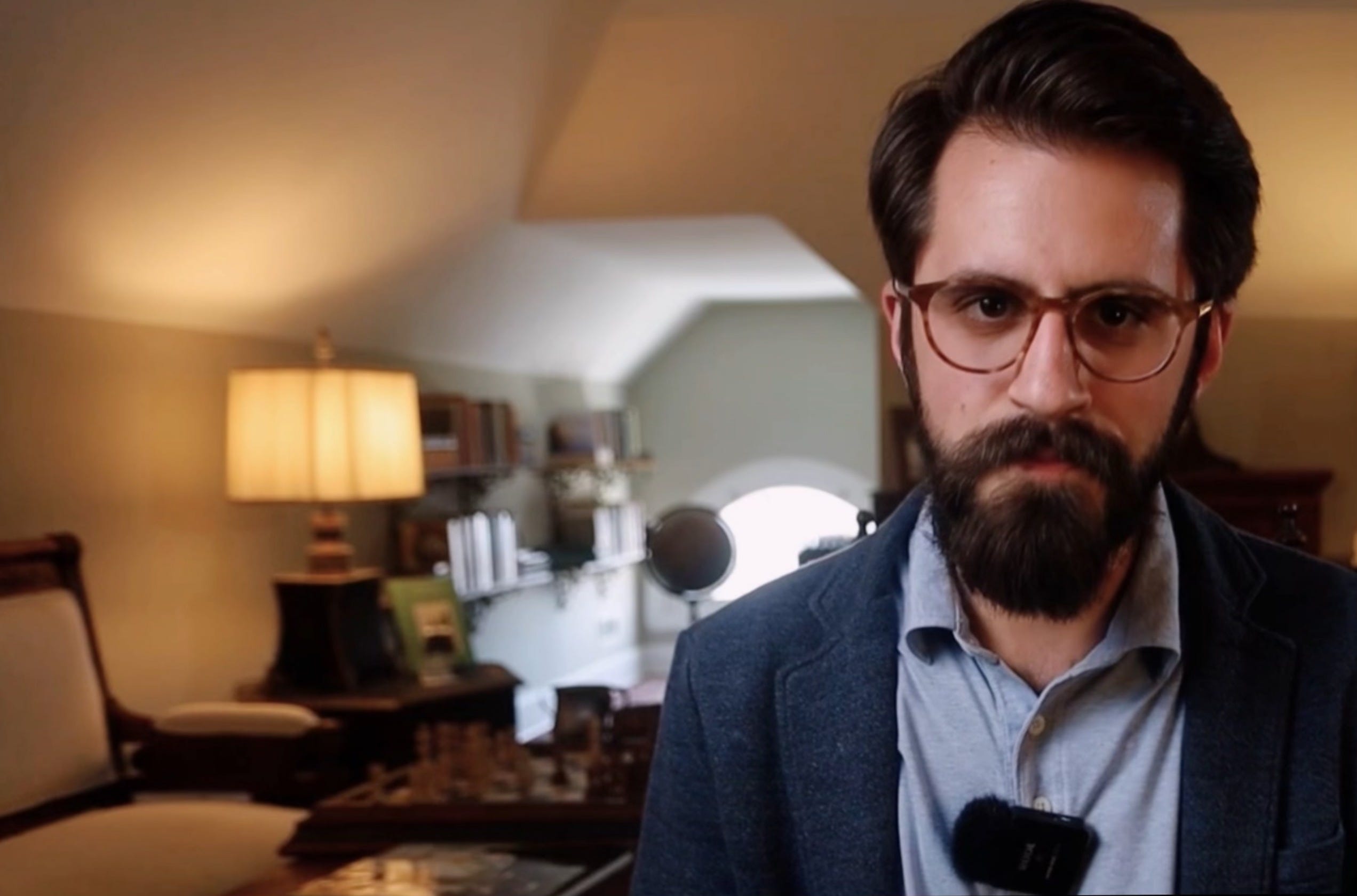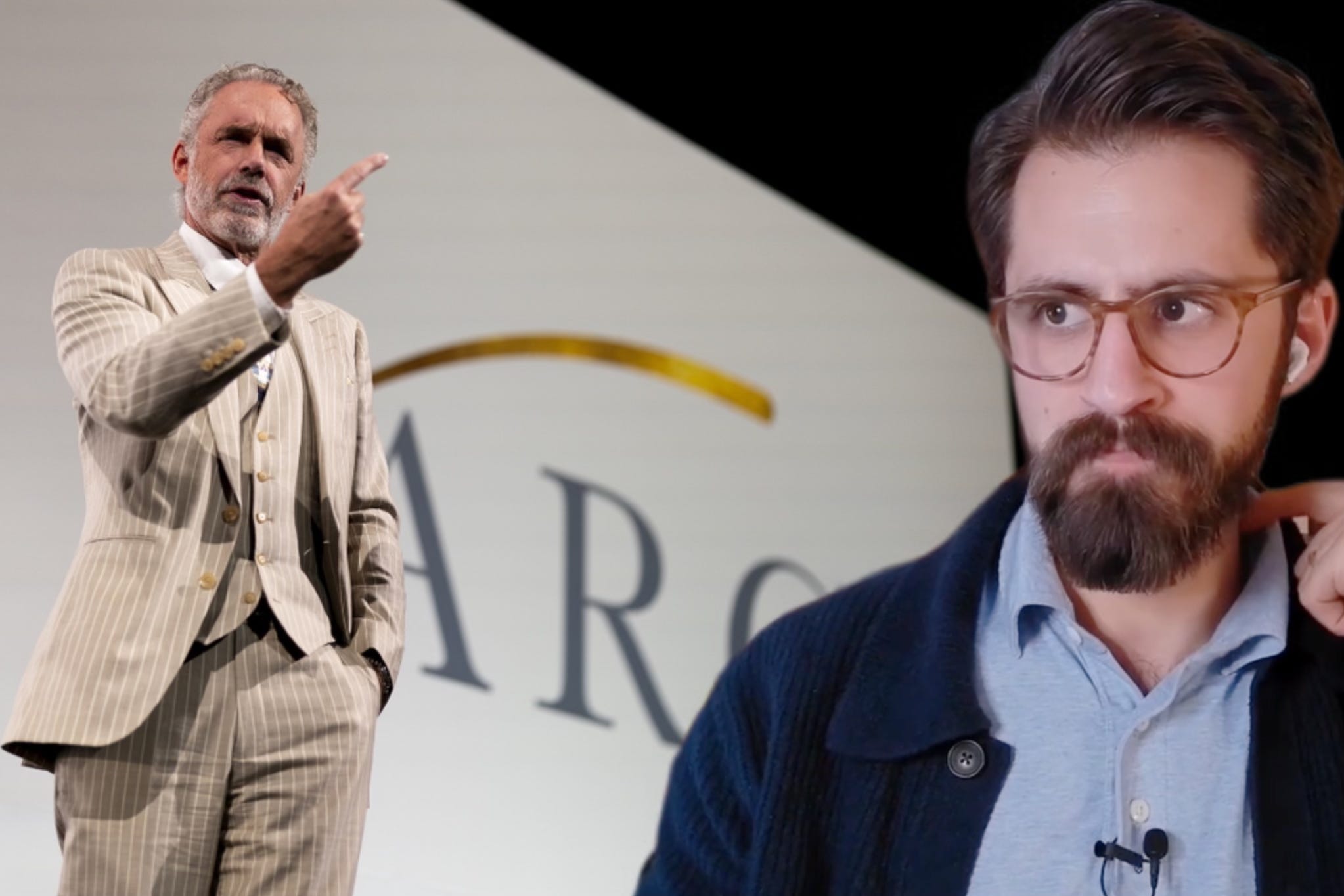Jordan Peterson: He Who Wrestles With God
Description
The evangelical takes on Jordan Peterson’s “We Who Wrestle With God” tour are coming out. Jake Meador attended Peterson’s lecture in Omaha and says that Peterson’s ideology is focused on excellence to the exclusion of mercy. Aaron Renn attended in Indianapolis and says that Peterson’s message is, at the end of the day, a New Age alternative to Christianity.
Anna and I attended on Valentine’s Day in St. Louis. It was a moving experience. Here are some of our reflections.
Anna’s Reflections
Going to hear Jordan Peterson was quite a life event for me. Like many others, I started listening to him in 2016 when he splashed onto the stage after protesting Bill C-16 in Canada. I spent much of 2017 struggling with depression, and the best help I found was in the hours I spent listening to him talk about meaning, mental health, and motivation for living. I still remember the streets I walked as I listened to his lectures and the puzzles I did as I listened to his debates with Sam Harris.
Since then, I was greatly moved by his health issues and identified with much of his suffering and depression. I am also deeply grateful for the world of people to which he has introduced me: Jonathan Haidt, Camille Paglia, Douglas Murray, Dave Rubin, Sam Harris, Jonathan Pageau, Andrew Huberman, Abigail Shrier, Slavoj Zizek, and countless others.
Going to see him was like going to meet my hero in real life, and even though I’d heard much of the material before, I was no less amazed by his talk. These days, I don’t get to listen to much undistracted. I struggle to get things from sermons because three kids clamor for my attention. Some of my euphoria probably came from sitting uninterrupted, just listening and thinking, for two hours straight.
However, there was much more to my enamor with Peterson. I have never heard someone be able to “riff” on Genesis 2–3 for that long with that much insight. I’ve been in the evangelical world all my life, so I have heard countless sermons, read many books and articles, and taught on that passage many times. Yet I hear more new truths from Peterson than from anyone else.
Peterson’s greatness comes from being one of our day’s greatest conversationalists. I don’t care for his writing (I won’t read his books) or Twitter habits, but he is incredible at leading you through a conversation, which is a skill that is sorely lacking today. Most pastors and professors talk at you, whereas Peterson helps lead you through truths, even when monologuing for 90 minutes. He is even better when having a conversation with someone like Camille Paglia, Sam Harris, or Douglas Murray.
“Wrestling with the truth” is how Peterson talks and thinks, and I am dismayed to hear criticisms of him from Christians that neglect this. They come from both the more conservative who don’t find him pure enough and from the more liberal who say he’s too capitalist or right-wing. But both miss the actual content and truth of what he is offering to millions of people.
Peterson’s project to help others with the problem of pain is also my goal in counseling. Suffering in this life is our greatest issue and what keeps people from believing in God. And even as a Christian, I am not finding answers to suffering in the Christian world but in Peterson’s material and interviews. Jungianism, symbolism, and archetypes are all vehicles to get at the truth, not hindrances.
His interview with Pageau on suffering after his health scare was one of the greatest “how-to-talk-about-suffering” conversations I’ve ever heard. His interview with detransitioner Chloe Cole was an incredible window into how a great therapist can pull out someone’s story. His conversation with Camille Paglia opened my eyes to insights on postmodernism, gender, and other forms of feminism. In a Joe Rogan podcast, he offered an incredibly powerful take on Scripture.
Lastly, Peterson’s words on, and example of, marriage and family seems better than anything I have heard taught on in the church. Because we attended on Valentine’s Day, (so romantic, I know,) there was a lot about love and marriage. I loved seeing him and his wife Tammy do the event together. Much of Christian teaching on Genesis 1–3 tends to get caught up in the submission-in-marriage debate, but Peterson transcended this.
The church is in crisis, especially because of how many marriages fail and a lack of integrity in leaders. In his own marriage and life, Peterson has displayed integrity, love, and honor to his wife, so I want to listen to him on the subject of marriage.
Given our appreciation of Peterson, Joel and I may end up like these guys:
Peterson’s Rebuke to Evangelicals
At the beginning of his lecture in St. Louis, Jordan Peterson addressed directly those who would have him confess Christian faith.
This is my own rendition of what he said, constructed out of things he has also said elsewhere:
“People ask me, ‘Do you believe in God?’
And it’s like, why do you want me to say that I do? And to say it publicly?
It’s like you’re asking me to stand on a street-corner and loudly proclaim my own righteousness, my alignment with the highest good. It’s like, I’m not going to do that.
And anyway, who are you to declare that you are on the side of the highest good? Who are you to claim the name of Christ or God and to say that you really and truly believe it?
Because if you really believed that God existed, you would act as though he did in every moment and every way. I’m not ready to claim that. Are you?
So my answer remains, ‘I act as though God exists, and I’m terrified that he might.’
Prepare Ye the Way of the Lord
Some criticize Peterson for his focus on Jungian and literary archetypes over literal truth. They say that he offers an alternative religion of self-help and New Age instead of Christianity.
But this is a failure to hear Peterson. Peterson is not offering a religion. He is exploring the universal dimensions of morality and myth, the psychological significance of religion, both what religious stories mean for everyone even if they aren’t literally true, and what they would mean for our behavior if they were true, if we truly acted as if God exists.
Let’s deal with the theological objection first: Evangelicals read Peterson as offering a Pelagian gospel of self-salvation.
But what Peterson is actually articulating is the content of the natural law and the moral teachings of Christ.
Of course, evangelical theology, especially of the more intellectual variety, has recently been neglecting these for a gospel of free grace. Jesus’s “Unless your righteousness exceeds that of the scribes and the Pharisees” has been disemboweled:
“Unless your righteousness exceeds theirs - which it can’t and won’t by your power, so you need the righteousness of Christ! Then you can be justified even if your life is not exceptional.”
Peterson is raising the bar as high as Christ raised it. There is no salvation disconnected from bearing the fruit of righteousness.
One of the reasons we accuse Peterson is because we think that the content of revelation in Scripture is totally disconnected from God’s revelation in nature: The gospel story has no continuity with the rest of human religion, philosophy, and literature - all of which promote self-salvation. But Peterson’s message is that the biblical story is one that has resonance with all the rest of human religion, philosophy, and literature, and that is even built into biology.
This brings us back to the question of the allegorical, moral, and psychological reading of Scripture. If we think that this is just an attempt to avoid the literal meaning of Scripture, we place ourselves outside of the mainstream of Christian theology through the centuries.
The consensus of Medieval Christian theology was that Scripture had a four-fold sense, in addition to the literal, there were the allegorical, the tropological (moral), and the anagogical (eschatological). Contemporary Protestants, the Reformed Evangelical in particular, are inclined to speak as though we have left behind the allegorical and moral altogether. Our Christ-centered preaching is the literal sense combined with seeing how it points to Christ.
But…that’s what the Medievals called the allegorical. The way in which the Old Testament could be read as embodying “types” of Christ (typological), is in turn deeply connected to seeing Christ as an archetype through all of history and literature. The depth of meaning of Scripture should indicate to us the depth of meaning of all literature and prime us to see Christ as distantly as the places where Peterson sees him.
At Wheaton College, Leland Ryken taught his evangelical students about the literary and archetypal reading of Scripture. This was necessary becau
























